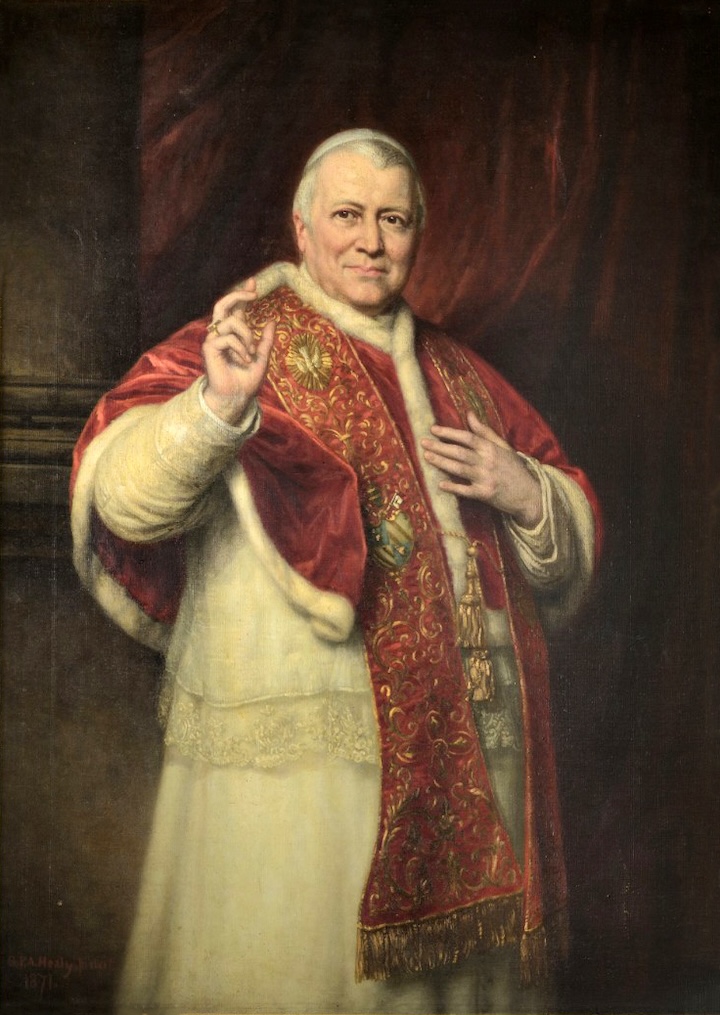The ability to make prudent judgments about the common good of a particular state, with its characteristic traditions, habits, and common way of life, is a skill that usually comes only with experience. Passing good laws that are neither too oppressive nor too liberal, that will make enough good sense to the majority of citizens and can be enforced appropriately, requires judgment, normally acquired by patient teaching and extensive experience. I do not deny that God could, on occasion, simply infuse in an individual the prudence needed to carry out a particular task, especially when the matter is urgent. But this should not be an excuse for laziness and lack of preparation.
Consider the claim that those who govern the state should be obedient to Church authorities. If by “be obedient to” or “be governed by,” we mean that civil authorities in making their own prudential judgments should be guided by moral principles revealed in the Scriptures and clarified by centuries of reflection, handed down by the tradition of the Church, then, yes. So too, when Church authorities warn, with the full authority of their office, that the secular authorities are violating fundamental, exceptionless moral norms of the natural law, then again, it would be best if the secular authorities would be obedient to that judgment of the Church.
But if by “being obedient to” or “governed by” the Church is meant that the prudential judgments of ecclesiastical authorities should govern or override those of well-intentioned secular leaders with a firm understanding of justice and the natural law, then the answer would have to be no.
Bishops have no more ability to judge whether taxes should go up or down, whether the trade deficit is too high or not, what level of immigration is best, or what the minimum wage should be than anyone else, even if they are truly holy bishops. The charism of apostolic authority does not guarantee civic prudence. Thus, ecclesiastical authorities who opine publicly on such practical matters, while ignoring the killing of pre-born children, have mistaken the nature of their charism and authority.
It would be better to claim that true prudence would cause a person to recognize the limitations of his own skills and abilities, such that, a bishop with perfect infused prudence would never presume to make (and then try to enforce publicly) prudential judgments concerning matters about which he has no special expertise. Presumably, such a holy bishop would recognize that it took him years to gain the wisdom and experience needed to understand his people and govern his diocese wisely – always with the help and guidance of the Holy Spirit. So too, it can take years to gain the wisdom needed to govern a civic community wisely.
I take it that a real statesman would have read widely, studied statecraft diligently, and watched other legislators to learn what works and what doesn’t. He would have met often enough with his fellow citizens to understand their needs and their tolerance for various rules and impositions on their freedom. And the prudential judgments of such a legislator would be informed by Aquinas’s admonition that “the laws imposed on men should be in keeping with their condition, for, as Isidore says, law should be ‘possible both according to nature, and according to the customs of the country.’”

Making prudential judgments of this sort is not merely a matter of consulting a list of moral dictates in a social justice textbook and then translating them into law. The prudence required for making such judgments requires training and experience. It is acquired over time, by trial and error, learning from mistakes and the good example of others. Those of us who are Christians believe this process is guided and made possible by the grace of the Holy Spirit. But in this matter, Aquinas’s dictum applies: “Grace does not violate nature but perfects it.”
But shouldn’t we at least demand that our civic leaders should all be Catholic? It depends. The history of hiring at Catholic universities suggests that simply hiring someone who checks the box “Catholic,” even someone who goes to Mass regularly, is no guarantee of understanding of, or devotion to, the Catholic mission of the institution. Few people are as anti-Catholic as angry, alienated Catholics. Better to get a devoted Jewish scholar who cares about liberal arts education than a Catholic who has no care for it.
So too, demanding that we tolerate only Catholic leaders would be far too close to the Calvinist view that only members of the elect are qualified to rule the city or the nation. Catholics have never insisted on this. They have, instead, for the most part held, as Heinrich Rommen writes in his magisterial The State in Catholic Thought:
Political authority is founded on the law of nature. The ruler, or more generally, political authority needs no ecclesiastical approbation or legitimation, nor does the non-Christian ruler need any kind of specific consent on the part of his Christian subjects. There does not exist a libertas Christiana which forbids the rule of non-Christians over Christians, as sectarians since the early centuries of the Christian era have contended. The sole and satisfactory legitimation of political authority is the law of nature generally and concretely the fulfillment of its duty toward the common good.
Catholics should not wish to repeat the errors of the early twentieth century when in the 1930s, for example, many Catholics supported Austria’s Engelbert Dolfuss when he dissolved the parliament in an effort to build a “Catholic” state; or when Catholics supported Portugal’s dictator, Antonio Salazar, and Spain’s dictator Francisco Franco, both of whom used censorship and secret police to quell opposition. Nor do I think Catholics should look back with fondness and pride at the absolutist rule of Pius IX over the papal states.
Having a Catholic ruler or executive, even one who is orthodox and holy, is no guarantee that one possesses the virtue of prudent civic administration.
__________















